What to expect: HEDIS audit + February legislative updates
What you need to know for the HEDIS audit
The annual Healthcare Effectiveness Data and Information Set (HEDIS) project is underway!
Between February and May, be on the lookout for incoming faxes and emails from KDJ Associates, Inc. requesting patient medical records. Please be ready to provide KDJ with the required documents within 3 days of their request.
What is HEDIS?
HEDIS is a performance measurement tool developed and administered by the National Committee for Quality Assurance (NCQA). Health plans across the United States utilize HEDIS to measure the effectiveness, availability and experience of care observed within a health care system.
Each year, California’s Department of Health Care Services (DHCS) requires health plans to collect and report data. As an Alliance provider, you have agreed to cooperate with our quality and audit programs, including providing medical records where needed. We thank you in advance for participating!
What will be reviewed
This year, the following HEDIS measures will be reviewed:
- Childhood Immunization Status.
- Immunizations for Adolescents.
- Cervical Cancer Screening.
- Prenatal and Postpartum Care.
- Controlling High Blood Pressure.
- Comprehensive Diabetes Care.
How we use HEDIS data
We use this data to develop and enhance educational programs and member and provider benefits while monitoring:
- Quality of care delivered.
- Rate at which members access preventive services.
- Indicators that describe how well members are managing chronic conditions.
- Provider performance.
- Health plan performance.
Questions?
Thank you for your attention and partnership. If you have any questions, please contact Georgia Gordon, Quality Improvement Program Advisor at 209-381-7391 or [email protected].
February legislative updates to know
Below, we break down a few laws that went into effect recently. These are important to know and have on your radar as they may impact how you provide services.
Bills in congress
AB 1241 – Medi-Cal: telehealth
- Currently, Medi-Cal providers are not required to provide certain services in person when there is a video, audio or other remote option available.
- Under AB 1241, providers must provide an in-person option for all services, even when offering a remote option. A provider can opt to arrange a referral to in-person care. This change will happen according to a date set by the department, no sooner than Jan. 1, 2024.
- Related policies
SB 487 – Abortion: provider protections
- Under current law, another state’s law that could bring a civil action against a person or entity that receives, seeks or performs an abortion is contrary to the public policy of California. Current law prohibits the application of another state’s law on abortion to a controversy in state court.
- This bill would also extend protections within these provisions to abortion providers in addition to abortion performers.
All Plan Letters (APLs)
- DMHC APL 22-031: Newly Enacted Statutes Impacting Health Plans (2022 Legislative Session).
- DMCH APL 23-025: Newly Enacted Statutes Impacting Health Plans.
- DHCS APL 23-034: California Children’s Services (CCS) Whole Child Model (WCM) Program.
For more information on the APLs, please visit our All Plan Letter webpage.


